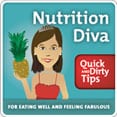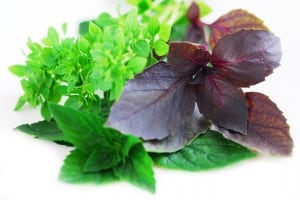Tag: nutrition
This Week’s Podcast | Are Steel Cut Oats Better than Rolled Oats?
 Several of you have written with questions about oats and oatmeal—in particular, whether steel-cut (or Irish) oats are healthier or more nutritious than regular oats. I think some of you will be surprised by the answer. Read or listen to this week’s podcast here.
Several of you have written with questions about oats and oatmeal—in particular, whether steel-cut (or Irish) oats are healthier or more nutritious than regular oats. I think some of you will be surprised by the answer. Read or listen to this week’s podcast here.
This Week’s Podcast | Are Pickled Vegetables Nutritious?
 Pickling is a time honored way to preserve foods with no refrigeration. But what happens to the nutritional quality of vegetables when you pickle them? It depends on the method. Find out which kinds of pickles are super good for you and which aren’t in this week’s episode of the Nutrition Diva Podcast.
Pickling is a time honored way to preserve foods with no refrigeration. But what happens to the nutritional quality of vegetables when you pickle them? It depends on the method. Find out which kinds of pickles are super good for you and which aren’t in this week’s episode of the Nutrition Diva Podcast.
What’s the Right Size Portion for Pasta? | Video
Dear Bob Harper and Editors of Shape Magazine
 I recently came across the following weight loss advice from “Biggest Loser” trainer Bob Harper in Shape Magazine (February 2011, page 171):
I recently came across the following weight loss advice from “Biggest Loser” trainer Bob Harper in Shape Magazine (February 2011, page 171):
“Eating first thing revs your calorie burn…If you don’t eat within two hours of waking, your metabolism can slow down to conserve energy.”
Arrggh! What will it take to put a stake through the heart of this myth-that-will-not-die? Bob Harper and Shape are not the first to perpetuate this urban legend and I’m sure they won’t be the last. But, c’mon! A guy of this clout and a magazine of this caliber should do better than repeat well-worn nonsense. They should be a beacon of accuracy in the swirling fog nutrition misinformation. And so, I’d like to issue…
A Friendly Challenge to Mr. Harper and the Editors of Shape:
If you can produce one shred of evidence or data to support this statement, I will personally treat you all to breakfast–a protein-rich and high fiber breakfast, of course. Continue reading “Dear Bob Harper and Editors of Shape Magazine”
Do Dried Herbs and Spices Have Nutritional Value?
 Q. Do dry herbs and spices have the same nutritional benefits as their fresh counterparts or are they only good for flavor?
Q. Do dry herbs and spices have the same nutritional benefits as their fresh counterparts or are they only good for flavor?
A. It depends on which herbs and spices (and which nutritional benefits) you’re talking about!
- Cinnamon, for example, is only consumed in its dried form but powdered cinnamon has been shown to help modulate the rise in blood sugar after meals.
- Ginger can be used either as a fresh root or as a dried powder but either way, has anti-inflammatory benefits. Same with garlic and onions.
- Dried spices like cloves, cinnamon, and black pepper all have high ORAC scores, which indicate antioxidant potential. A teaspoon of these spices is comparable to a serving of blueberries or strawberries.
Clearly, there is still plenty of nutritional benefit to be had from dried spices.
The Difference Between Fresh and Dried Herbs Continue reading “Do Dried Herbs and Spices Have Nutritional Value?”
This Week’s Podcast | Nutritional Advantages of Grass-Fed Beef
 In this week’s podcast, I talk about the differences between conventionally-raised and grass-fed beef. In particular, I take a closer look at some of the nutrition claims you sometimes hear. If you’re eating grass-fed beef because you’ve heard it’s higher in omega-3 or other nutrients, you’ll want to read or listen to it here!
In this week’s podcast, I talk about the differences between conventionally-raised and grass-fed beef. In particular, I take a closer look at some of the nutrition claims you sometimes hear. If you’re eating grass-fed beef because you’ve heard it’s higher in omega-3 or other nutrients, you’ll want to read or listen to it here!
This Week’s Podcast: 2010 Dietary Guidelines
The USDA and Department of Health and Human Service have just released the long awaited 2010 Dietary Guidelines for Americans. Get my take on the new guidelines and what they mean for you in a special edition of the Nutrition Diva podcast.
